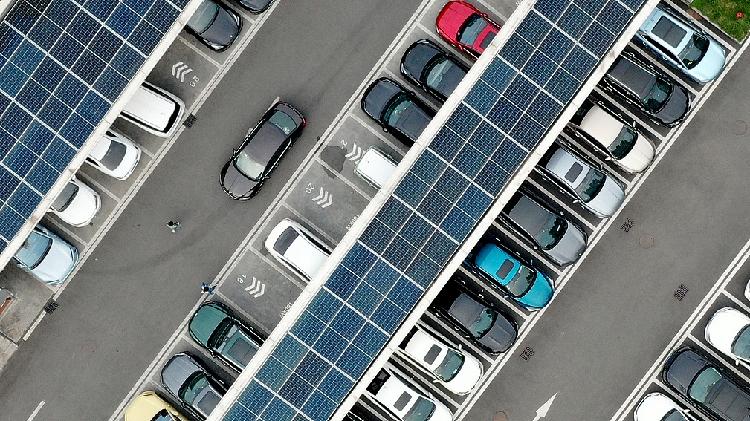Annual Production of NEVs in China Reaches 10 Million
China's new energy vehicle (NEV) annual production has reached an impressive milestone of 10 million units. This achievement underscores the rapid growth and significant advancements in the country's automotive industry, particularly in the production of environmentally friendly vehicles. The surge in NEV production reflects China's commitment to reducing carbon emissions and promoting sustainable transportation solutions.

During a ceremony in Wuhan, located in central China's Hubei Province, a pink Voyah Zhiyin new energy SUV was unveiled as it rolled off the production line. The event featured videos of various companies producing NEVs, highlighting the automotive industry’s latest accomplishment.
Analysts view this achievement as a historic moment, symbolizing not only the evolution of China’s automotive sector but also a broader global movement towards sustainable transportation.
"Developing the new energy industry and advancing green, low-carbon transitions are shared goals for countries worldwide," stated Xin Guobin, vice minister of the Ministry of Industry and Information Technology. He emphasized the vital role NEVs play in global initiatives aimed at addressing climate change and environmental protection.
This milestone reflects China's growing commitment to global green development and carbon reduction, according to Fu Bingfeng, executive vice president and secretary-general of the China Association of Automobile Manufacturers.
Official statistics reveal that the market share of NEVs in China was a mere 1 percent in 2015, but this figure has significantly increased, propelled by an accelerated transition towards greener practices within the economy.
NEVs made headlines in July when they outpaced traditional fuel-powered vehicles in market share for the first time, achieving retail sales of 878,000 units and accounting for 51.1 percent of the domestic market.
The trend of promoting a green transition within the auto industry is evident, with China's NEV development aligning with the rising demand in the global automotive market.
The International Energy Agency's report noted that electric cars—which include both battery electric and plug-in hybrid models—comprised approximately 18 percent of all cars sold globally in 2023, an increase from 14 percent in 2022 and just 2 percent in 2018. "These trends indicate that growth remains robust as electric car markets mature," the report highlighted.
It's important to note that China's NEV industry primarily caters to the domestic market, with exports representing only a small fraction of total production. Last year, around 9.59 million NEVs were manufactured in China, but merely 12 percent were exported.
Data from the China Association of Automobile Manufacturers indicates that domestic sales of NEVs reached 8.692 million units in the first ten months of this year, overshadowing the export figures during the same timeframe by more than eightfold. The domestic sales saw a year-on-year increase of 38.3 percent, significantly outpacing the growth in exports.
In recent times, prominent international automotive firms, including Tesla, BMW, and Toyota, have been expanding their NEV production efforts in China.
For instance, Toyota has established one of its largest overseas research and development centers in Changshu, Jiangsu Province, and opened an advanced technology research center in Shanghai. Meanwhile, Tesla commenced construction of a mega factory in Shanghai in May, aimed at manufacturing its energy-storage battery Megapacks.
Olivia Brown for TROIB News
Find more stories on Business, Economy and Finance in TROIB business












